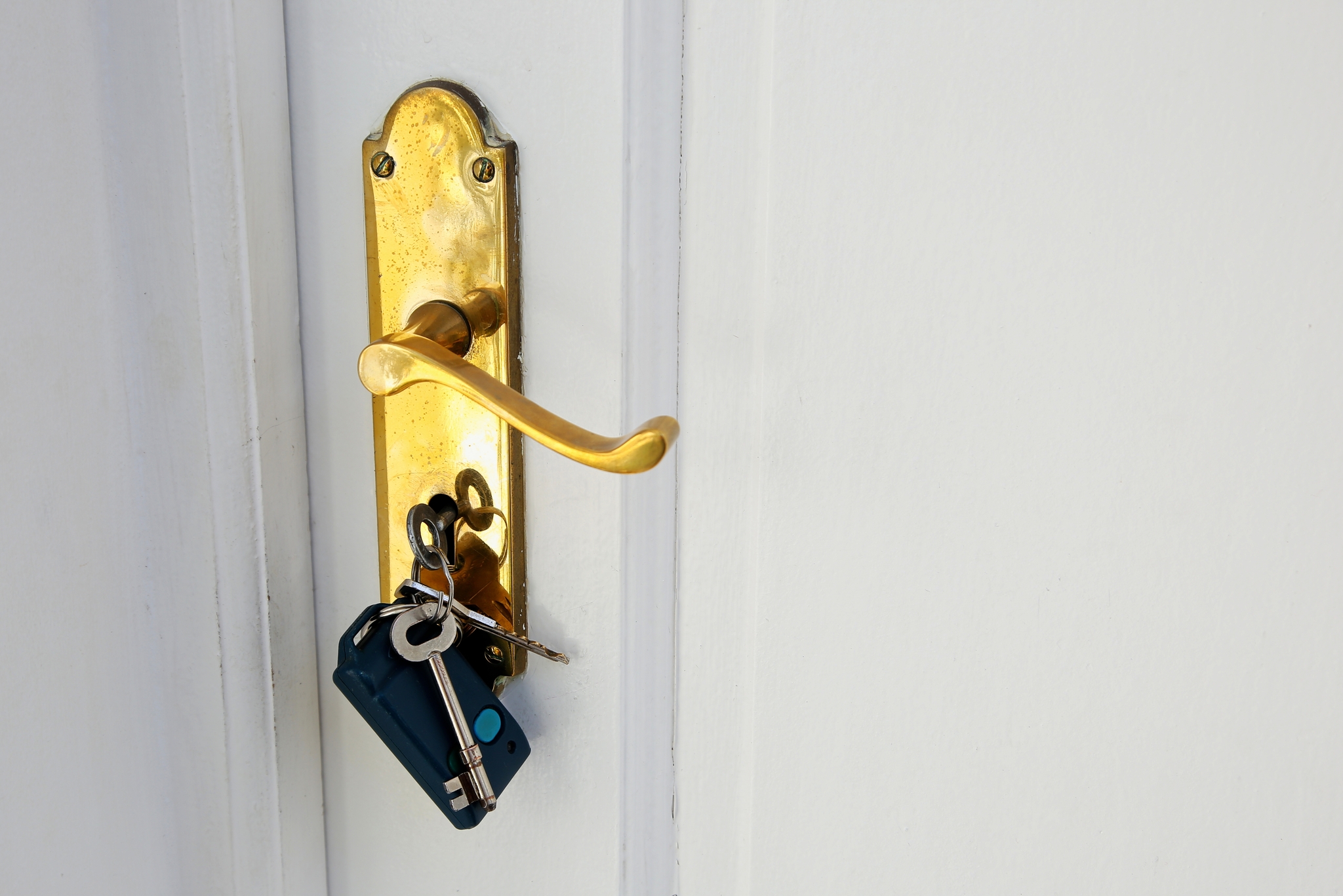The Evolution of Home Security: From Locks to Smart Systems
June 8, 2024

In a rapidly evolving world, home security has transformed from the simplicity of traditional locks to the sophistication of smart systems. The journey of safeguarding our homes has taken an exciting turn, embracing technology and innovation. In this comprehensive exploration, we’ll delve into the fascinating evolution of home security, from the humble beginnings of lock technology to the cutting-edge world of wireless security systems and smart home automation.
Locking in the Past: Traditional Security
Lock Technology: The history of home security began with the development of lock technology. Traditional locks, with their mechanical mechanisms, were the cornerstone of safeguarding homes for centuries. From simple padlocks to intricate deadbolts, these locks served as the first line of defense against intruders.
Advantages of Traditional Locks: Traditional locks had their merits. They were reliable, low-tech, and served their purpose well. However, as technology advanced and the world became more interconnected, the limitations of these locks became evident.
Unlocking the Future: Smart Locks
As technology advanced, smart locks emerged as a game-changer in the realm of home security.
Smart Locks: These innovative locks are at the forefront of the smart home revolution. Smart locks like the ones of Cove Smart Security offer keyless entry, remote access, and integration with home automation systems, making them an integral part of modern home security.
- Keyless Entry: With smart locks, you can bid farewell to the jangling keychain. These locks use codes or smartphone apps to grant access.
- Remote Access: Forgot to lock the door? No problem. You can secure your home from anywhere with an internet connection.
- Home Automation Integration: Smart locks seamlessly integrate with home automation systems, allowing you to control access and security as part of your overall smart home.
Going Wireless: The Rise of Wireless Security Systems
In the past, hardwired security systems were the standard. However, the advent of wireless technology has brought about significant changes.
Wireless Security Systems: Wireless systems are becoming increasingly popular due to their flexibility, ease of installation, and scalability. They use wireless connections and can be easily integrated into existing smart home ecosystems.
Home Alarm Systems: These systems encompass more than just locks. They include motion sensors, door/window sensors, and alarm panels that connect to a central monitoring station.
Video Surveillance: Video surveillance has undergone a revolution. From closed-circuit systems of the past, we now have internet-connected cameras that offer remote monitoring and recording.
Choosing the right security system is of utmost importance, as it not only safeguards your home but also influences your overall sense of security and well-being. The decision you make regarding your security system can impact how effectively your home is protected against potential threats, and it can also determine the convenience and peace of mind you experience in your day-to-day life.
Access Control and Home Automation
Access Control: Modern access control systems use digital authentication, biometrics, or keycards to grant entry. These systems offer precise control and audit trails.
Home Automation: Home automation isn’t just about convenience; it’s a key component of smart home security. Lights, thermostats, and locks can be automated to enhance security and energy efficiency.
The Advantages of Smart Home Security
The transition from traditional security to smart home security comes with a host of advantages.
Advantages of Smart Security:
- Enhanced Monitoring: With smart alarms and systems, you can receive real-time alerts and monitor your home remotely.
- Convenience: Keyless entry and automation make daily life easier.
- Peace of Mind: Knowing that your home is secure provides peace of mind.
Overcoming Challenges in Smart Security
While smart home security offers numerous benefits, there are also challenges to address.
Challenges in Smart Security:
- Privacy Concerns: Smart devices collect data, raising privacy concerns that must be addressed.
- Cybersecurity: As smart systems connect to the internet, they become potential targets for cyberattacks.
The Future of Home Security
What does the future hold for home security?
Future Trends in Home Security: The future promises even more integration, automation, and the utilization of artificial intelligence in security systems. As technology advances, security systems will become more sophisticated and effective.
Comparative Analysis: Traditional vs. Smart Security
Let’s compare the old and the new to help you make an informed decision about your home security.
Comparative Analysis: Traditional locks are cost-effective but lack remote access and automation. Smart security systems offer more features and benefits but come with higher upfront costs.
From Smart Systems to Safer Locations
As you explore the evolution of home security, it’s evident that technology has transformed the way we protect our homes. From traditional locks to modern smart systems, the emphasis has always been on ensuring the safety of your residence. But sometimes, enhancing your home security might involve considering a move to a more secure location. For instance, relocating to a place like Miami, Florida, which offers a range of safety benefits, can be a strategic step in upgrading your home security. To make this transition smoother, you can explore auto transport services, which not only provide convenience but also ensure your vehicles reach your new location safely.
Final Thoughts
The evolution of home security from traditional locks to smart systems is a testament to human innovation and our constant quest for safety and convenience. As technology continues to advance, the future of home security is bound to be even more exciting and effective. Whether you opt for traditional locks or embrace the world of smart security, the most important thing is ensuring that your home is safe and secure.
No matter your choice, one thing is clear: the evolution of home security is a fascinating journey, and it’s one that’s far from over. As we step into the era of AI in security systems, we can be certain that our homes will be safer, smarter, and more connected than ever before. Remember to make an informed d